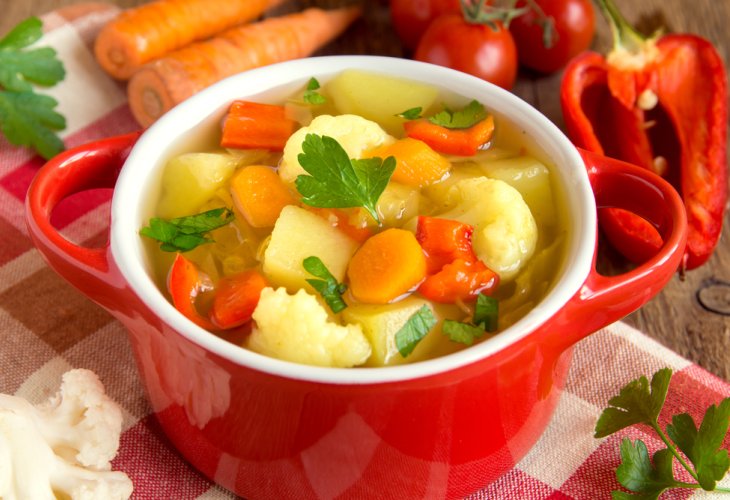Surprising Tip: Save Your Vegetable Boiling Water
Who actually saves their cooking water? Probably nobody, but according to a nutritionist, there's a good reason to do so. Here's why.
 (Photo: shutterstock)
(Photo: shutterstock)Why is it important to save your cooking water? Dr. Maya Rozman addressed this issue on her radio show on 103FM.
"You should know that baked vegetables have an advantage over boiled ones – when baking, everything inside the vegetable stays inside, except for vitamin C which is destroyed by heat," the nutritionist explained. "The more you heat, the more vitamin C is destroyed. But if you boil something in water, minerals transfer from the vegetable to the water. For example, lots of potassium, iron, and magnesium migrate from cauliflower or potatoes to the cooking water."
So, why shouldn’t you pour the cooking water down the drain?
The nutritionist responds: "If you dump the water, you're losing out on minerals. If you consume them along with the vegetables, like in soup, then of course you don't lose anything because the body doesn't care if it comes from the soup or the cauliflower.
What should you do if you want to make mashed potatoes or you cooked cauliflower and want to bake it, and you don't need the water?
Dr. Rozman shares a little tip from her personal experience:
"Potassium, iron, and magnesium transfer to the water and I don't want to lose them, so I first made sweet potato mash, saved the water, and cooked lentil pasta in it. Then, when the pasta was cooked in those enriched waters, it absorbed some of the minerals," according to the nutritionist. This is a partial solution that allows us to use the water instead of pouring it out.

